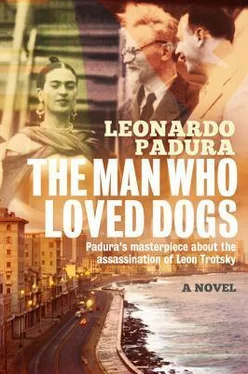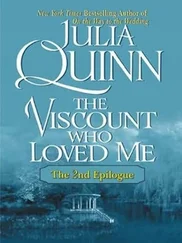Taking care not to move the straw mattress, he sat up. He immediately felt the pressure of Maya’s snout on his knees: his dog greeted him, and he rubbed her ears, in which he found warmth and a comforting sense of reality. Dressed in a rawhide cloak and a scarf around his neck, he emptied his bladder in the toilet and moved to the room that was simultaneously kitchen and dining room, already lit by two gas lamps and heated by the stove on which rested the samovar, prepared by his personal jailer. In the mornings he had always preferred coffee, but he had already resigned himself to accept what was assigned to him by Alma-Ata’s miserly bureaucrats and its secret police guards. Seated at the table close by the stove, he began taking a few sips of that strong tea, too green for his liking, from a china cup while he caressed Maya’s head, without suspecting that he would soon receive the most perfidious confirmation that his life and even his death had ceased to belong to him.
Exactly one year before, he had been confined to Alma-Ata, at the limit of Asian Russia, closer to the Chinese border than to the last station of any Russian railway. In reality, ever since he, his wife, and their son Liova had stepped out of the snow-covered truck in which they had covered the final stretch of their road to a malicious deportation, Lev Davidovich had begun to wait for death. He was convinced that if by a miracle he survived malaria and dysentery, the order to eliminate him was going to come sooner or later (“If he dies so far away, by the time people find out about it, he will already be well buried,” his enemies thought, without a doubt). But while they waited for that to happen, his adversaries had decided to make the most of their time and devoted themselves to annihilating him from history and memory, which had also become the party’s property. The publication of his books, just when he had reached the twenty-first volume, had been halted, and an operation was being carried out to remove copies from bookstores and libraries; at the same time, his name, slandered at first and then discredited, began to be erased from historical accounts, tributes, newspaper articles, even from photographs, until they made him feel how he was turning into an absolute nothing, a black hole in the memory of the people. For that reason, Lev Davidovich thought that if anything had saved his life until then, it was fear of the schism that the decision to eliminate him could cause, if there was indeed something still capable of altering the consciousness of a country deformed by fear, slogans, and lies. But one year of enforced silence, accumulating low blows without any chance to reciprocate, seeing how the remains of the opposition he had led were dismantled, convinced him that his disappearance was becoming more necessary every day for the macabre decline toward despotism of the great proletarian revolution.
That year of 1928 had been, he didn’t even doubt it, the worst of his life, even though he had lived through many other terrible times confined in Czarist jails or wandering penniless and with little hope through half of Europe. But during each disheartening circumstance, he had been sustained by the conviction that all sacrifices were necessary when aspiring to the greater good of the revolution. Why should he fight now, if the revolution had already been in power for ten years? The answer was becoming clearer to him every day: to remove it from the perverse abyss of a reaction that was intent on killing human civilization’s greatest ideals. But how? That was still the great question, and the possible responses crossed his mind, in a chaos of contradictions with the capacity to paralyze him in the midst of his strange struggle as a marginalized Communist against other Communists who had stolen the revolution.
With censored and even falsified information he had followed the miserable start of a process of ideological destabilization, of the confusion of political positions that had been undefined until recently, through which Stalin and his minions stripped him of his words and ideas, by the malevolent procedure of appropriating the same programs through which he had been harassed to the point of being thrown out of the party.
At that moment of deep thought, he heard the door to the house open with a creak of frozen wood and saw the soldier Dreitser enter, dragging in a cloud of cold air. The new head of the GPU watch group tended to demonstrate his power by entering the house without deigning to knock at that door which had been stripped of locks. Covered by a hat with ear flaps and a leather cloak, the policeman had begun to shake off the snow without daring to look at him, because he knew that he was the bearer of an order that only one man in the entire territory of the Soviet Union was capable of devising and, furthermore, of carrying out.
Three weeks earlier, Dreitser had arrived as a sort of black messenger from the Kremlin, bearing new restrictions and the ultimatum that if Trotsky didn’t halt his oppositionist campaign amid the colonies of deportees, he would be completely isolated from political life. What campaign, since it had been months since he could send or receive correspondence? And what new isolation was he being threatened with if not death? To make his control more evident, the agent had decreed a prohibition on Lev Davidovich and his son Lev Sedov going out to hunt, knowing that with those snowfalls it was impossible to hunt. Nevertheless, he confiscated shotguns and cartridges in order to demonstrate his will and his power.
When he managed to free himself of the snow layered on his coat, Dreitser approached the samovar to serve himself tea. By the motion of the wind, Lev Davidovich had deduced that it must be less than thirty degrees below zero outside and that the empire of interminable snow, with the exception of some redeeming stones, was the only thing that existed on that damned steppe. Following his first sip of tea, Dreitser had at last spoken and, with his Siberian bear accent, told him that he had a letter that came from Moscow. It wasn’t difficult for him to imagine that a letter capable of passing postal control could only bring the worst news, and this was confirmed by the fact that for the first time Dreitser had addressed him without calling him “ Comrade Trotsky,” the last title he’d kept in his turbulent decline from the heights of power to the solitude of banishment.
Ever since receiving the news of the death of his daughter Nina from tuberculosis in July, Lev Davidovich had lived with the fear that other family misfortunes would occur, a by-product of regular life or, as he feared more with each passing day, of hate. Zina, his other daughter from his first marriage, had had a nervous breakdown, and her husband Plato Volkov was, like other oppositionists, already in a work camp in the Arctic Circle. Fortunately, his son Liova was with them, and the young Seriozha, the Homo apoliticus of the family, remained a stranger to partisan struggles.
Natalia Sedova’s voice, saying good morning while simultaneously cursing the cold, reached him at that moment. He waited for her to enter, met with joy by Maya, and felt his heart shrink: Would he be capable of transmitting fatal news to Natasha about the fate of her beloved Seriozha? With a mug in her hands she had sat down in the chair and he watched her. She’s still a beautiful woman , he thought, according to what he would write later. Then he told her that they had correspondence from Moscow and the woman also became tense.
Dreitser had left his mug next to the stove to rummage in his pockets in search of his pack of unbearable Turkmeni cigarettes and, as if taking advantage of the act, stuck his hand in the interior compartment of his cloak, from which he removed the yellow envelope. For a second it seemed that he had the intention of opening it, but he chose to place the packet on the table. Trying to hide his anxiety, Lev Davidovich looked at Natalia, then at the stampless envelope where his name was imprinted, and threw the cold tea in the corner. He handed the mug to Dreitser, who was forced to take it and return to the samovar to refill it. Although he had always had a flair for the theatrical, he understood that he was wasting his histrionics before that reduced audience, and without waiting for the tea he opened the envelope. It contained one sheet, typewritten, with the GPU seal and was undated. After replacing his glasses, he spent less than one minute reading it but remained silent, this time without any dramatic gestures: surprise at the incredible had left him speechless. Citizen Lev Davidovich Trotsky should leave the country within a period of twenty-four hours. His expulsion, without a specific destination, had been decided by virtue of the recently created Article 58/10, useful for everything, although in his case, according to the letter, he was accused of “carrying out counterrevolutionary campaigns in order to organize a clandestine party hostile to the Soviets. .” Still silent, he passed the note to his wife.
Читать дальше











